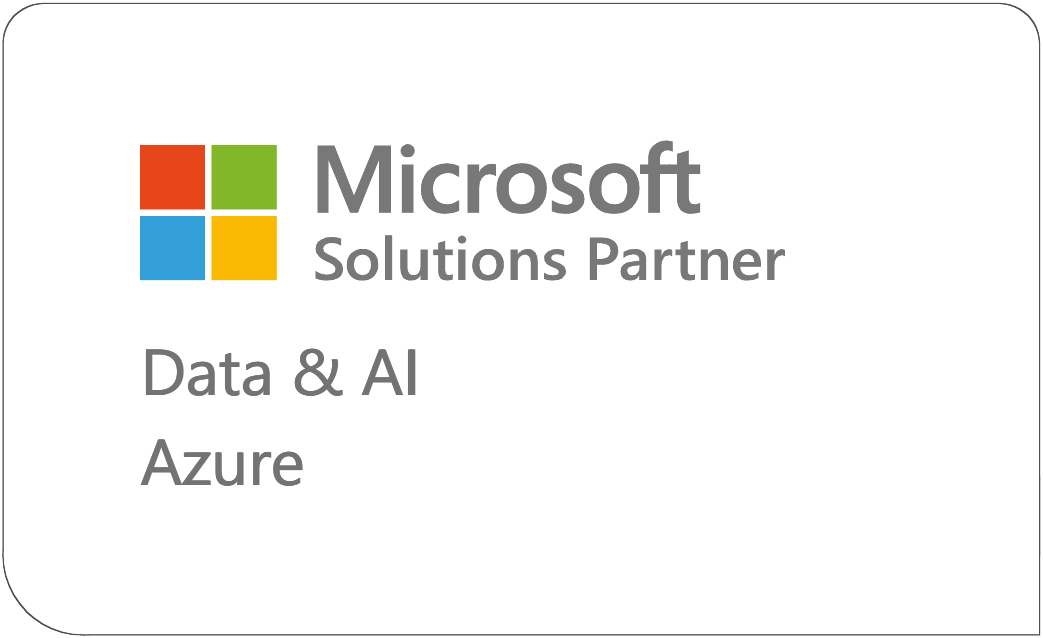Data analytics is essential for modern business operations and decision-making processes. Simultaneously, cloud migration is becoming the standard in digital transformation strategies.
Microsoft Azure is positioned right at this intersection, bringing data and cloud computing together to solve the most pressing business challenges in today’s digital environment.
There’s a reason why 85% of Fortune 500 enterprises use Azure. It’s one of the biggest painkillers for complicated data considerations such as the proliferation of data sources, security, and advanced analytics.
First Thing First…What is Microsoft Azure?
Azure is Microsoft’s entire cloud platform that consists of hundreds of tools to support everything from business automation and IoT sensors to data infrastructure and ETL (Extract, Transform, Load) processes. You can use Azure to build virtually anything digital, including interactive websites, mobile apps, or anything else you can imagine.
Here at Collectiv, we’re most passionate about its data capabilities.
When it comes to data analytics, Azure stores, compiles, transforms, and transfers data in the cloud to extract insights, generate reports, and build automation capabilities. Since Microsoft hosts and manages the environment, you don’t have to hire a team of database administrators to maintain the infrastructure.
Additionally, Azure has redundancy across multiple locations. This is especially crucial for international organizations. If you have offices in Europe and Asia, you can replicate data in those locations to manage resources and meet location-specific needs.
Overall, the value of Azure for enterprise organizations lies in its ability to help teams do more with their data with fewer resources.
What is Microsoft Azure Used For?
The only way to understand the full power of Microsoft Azure is to dig into its capabilities and the significant problems that it solves for enterprise organizations.
Let’s look at 7 common ways organizations use Microsoft Azure, and how to apply it in your organization.
1. Consolidate Multiple Data Sources into a Scalable Solution
The proliferation of data from numerous sources throws a wrench in organizations’ data processes. While tools like Power BI are powerful for compiling data from disparate sources, they don’t scale to support enterprise-level use cases.
By combining BI tools with Azure Data Factory, you achieve repeatable, secure, and high-performing data integration in the cloud and store the information in an accessible location.
No matter how many databases you are dealing with—or how large they are—Azure makes this consolidation process manageable.
2. Ensure Secure Data Storage and Access
Data privacy is a significant concern for any organization in the modern age, and Azure helps enterprises achieve airtight security to ease any of those privacy worries.
Azure integrates Microsoft data security features like Active Directory and MS Exchange 365 from the ground up to create a platform you can trust.
Plus, you can use your existing credentials in the cloud environment. This leaves your systems less vulnerable to security threats since your team will not need to set up new login processes. This also streamlines the transition period and minimizes disruptions.
3. Enhance Collaboration with External Consultants
Azure acts as a central, accessible hub in an analytics solution, allowing external consultants (like us) to collaborate with your team in your cloud environment.
Unlike on-premise databases that require complex and often costly methods for accessing your infrastructure, Azure allows us to easily work alongside your team without compromising data security.
4. Reduce IT Resource Requirements
Microsoft maintains and updates the solutions. Meaning, what you previously needed a large, dedicated IT team to accomplish can be shifted onto Microsoft’s plate.
The personnel budget that this saves you lets you allocate more budget to hire business-focused team members to support your organization’s growth.
The aforementioned ease of collaboration with consultants also means that you are able to shift the technical heavy lifting off of your team’s shoulders in an easy and reliable way, giving them the bandwidth to focus on strategic initiatives.
5. Cleanse Data Easily
Organizations often need to clean up raw data or connect it against another data set to generate the most value. This is where Azure Data Factory comes in.
Azure Data Factory leverages existing SQL Server Integration Services (SSIS) packages and pre-built data infrastructure elements in the cloud.
Azure Data Factory also offers a much more polished, user-friendly, and low-code interface than SSIS if you build a solution from the ground up. This improved user experience helps boost organization-wide adoption.
6. Accelerate Digital Transformation With Minimal Disruption
Since Azure is based on the same technologies you likely already use on-prem, you don’t have to recreate existing data solutions in the cloud.
In most cases, we can perform what we call a simple “lift-and-shift” to transfer the existing logic and warehouses into Azure.
The subscription model of this tool also relieves a lot of the financial burden that often comes with digital transformation. Ultimately, you’re able to improve your data management and analytics capabilities without a substantial capital drain.
7. Promote Trust in Data Across the Organization
Azure brings business users closer to the data they work with by eliminating technical layers.
It simplifies the transformation logic and increases transparency, so analysts and decision-makers are confident that the data they need is accurate and accessible.
This accessibility and ease of use promote the use of analytics throughout the organization to support accurate, data-driven decision-making.
Tap Into the Power of Data with Microsoft Azure
Azure consists of many tools, which makes implementation seem quite daunting.
When you bring on experts from Collectiv, you lean on our experience and expertise to combine all of these tools correctly, helping you maximize your investment.
Our value comes from the fact that we’re not just Power BI experts. We’re well-versed in all aspects of the data journey, including SQL warehousing and networking security.
Our team is also savvy in business processes and technical requirements to help you improve your data infrastructure and gain better insights.
Ready to explore how Microsoft Azure benefits your business? Get in touch to see how we can help.



























